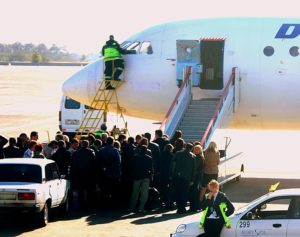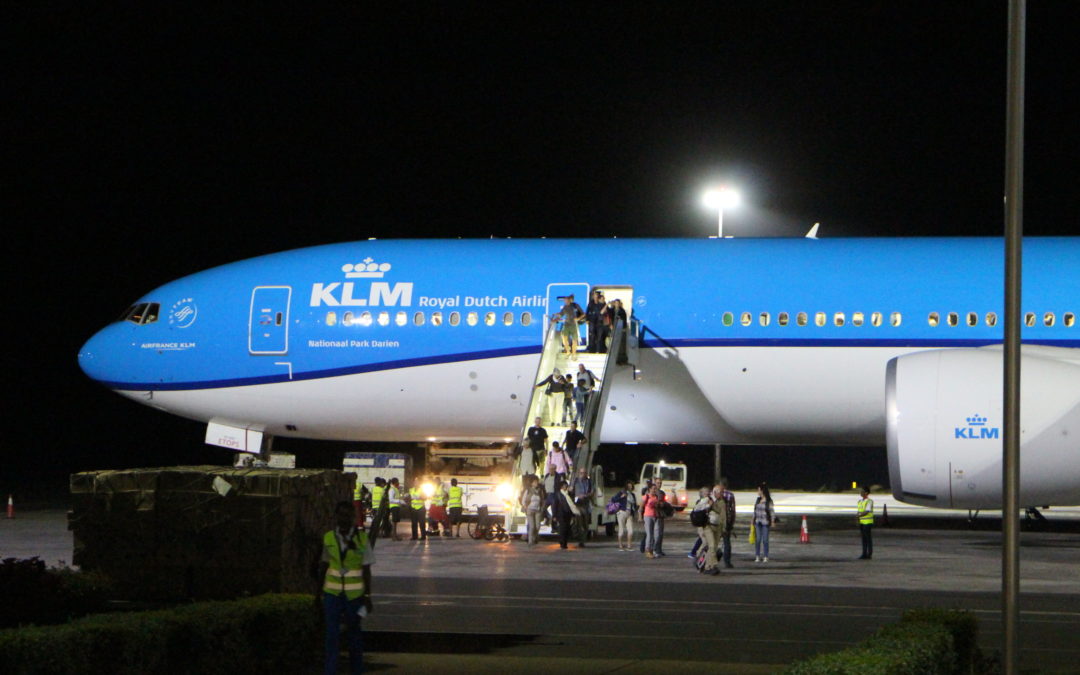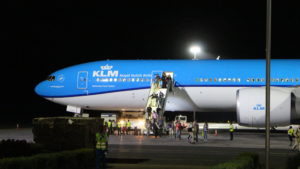
Giu 2, 2018 | The Blog
Remember Bill Murray? Hint: he starred in Ghostbusters, Groundhog Day, etc.
A few days ago, in an interview with The Guardian, he expressed how he feels about those people who are obsessed with their social media presence.
Do you know anyone like that? I’ll bet you do.
“My only problem with it is that people now feel they should document their life rather than live it.”—said the 68-year-old actor.
It kind of reminds me of myself when I bought my first video camera all those years ago.
 On vacation, I’d be walking around like a SWAT trooper entering an unsecured building—except I was brandishing a VHS camera instead of an automatic rifle.
On vacation, I’d be walking around like a SWAT trooper entering an unsecured building—except I was brandishing a VHS camera instead of an automatic rifle.
The device would precede me into museums, restaurants, hotels, and onto scenic overlooks, boats, planes, and all sorts of vehicles.
When I came back from my trips, people would ask me, “Well, how did it go?”
“Uh—I would respond—I don’t know. I haven’t watched the video yet.”
I’m glad I got over that dumb phase. One of the reasons I did was the bulk of the camera and how inconvenient it was to carry it.
Fast-forward to present-day smartphones and the ubiquitous selfie-stick.
They’re easier to carry and they can even accompany you when you go skydiving, abseiling, climbing, skiing, etc.
Sadly, they’ll also get you run over by a bus or cause you to fall down a cliff when looking for the killer shot—the one that’ll go viral on the Web.
Killer shot, indeed.

Mag 18, 2018 | The Blog
“This position will require extensive international travel.”
Job ads containing this statement were the ones most applicants preferred.
Hey, I know this because this was exactly the kind of job I used to go for.
 For almost 30 years, my jobs would invariably involve ‘extensive international travel’ and I loved them for that.
For almost 30 years, my jobs would invariably involve ‘extensive international travel’ and I loved them for that.
There I was, barely in my thirties, jetting around the world in business class, staying at 5-star properties in Jakarta, Indonesia or Houston, Texas and occasionally generating some business in the process.
In those golden days of yore, I only had to worry about making connections and being picked up at the airport. I never even thought about airline crashes (I still don’t) and I never for a moment thought my pilot would deliberately fly his plane into the ground—or the big briny. You’re kidding, right?
I can recall just a handful of flights when we had some sort of technical problem (engine failure, autopilot down, go-around, etc.), the memories of which I still treasure. The captain would calmly announce the unexpected glitch and we passengers would hit the alcohol supply hard. (Some uncouth newbies would clap hands when we finally landed, while the business-class types—me included—would scoff at their lack of poise.)
I suspect a ‘Positions Wanted’ ad today will not emphasize the international-travel component at all. Here’s why:
- Companies have since introduced travel policies whereby only VPs and assorted royalty get to travel in business class.
- On top of that, news headlines have shown that you might end up with a demented pilot (either German or Malaysian) who’ll commit suicide by crashing his plane—whoa, your plane—into a ravine or the Indian Ocean.
In the first case, your international travel is now guaranteed to occur in a crowded coach cabin—planes are always 99.9 percent full; yield management systems have seen to that. Curiously, reservations systems will always surround you with noisy children and Neanderthals who use seatbacks as weapons of mass destruction.
In the second case, you now need to take a quick peek into the cockpit to see if the skipper appears deranged, suicidal or is wearing a kamikaze bandanna. Needless to say, this is pretty stressful and will quickly kill the residual lure of international travel.
The reduced amount of travel I do nowadays takes place in seats that would have been uncomfortable to me when I was 16. Airports are no longer glamorous and glittering but drab and overcrowded. Several Middle-Eastern bad actors have made sure security protocols have become more and more invasive and time-consuming over the years.
Folks, who needs this crap? I’m treasuring my memories of flying in aviation dinosaurs (Boeing 707s, Douglas DC8s and -10s—and even early-model Boeing 747s) for thousands of hours.
Millennials are most welcome to take the baton from me.

Apr 1, 2018 | The Blog
 After a rather long and wet winter, today—Easter Sunday, April 1—the sun is shining over Northern Italy and temperatures are just shy of 20° C.
After a rather long and wet winter, today—Easter Sunday, April 1—the sun is shining over Northern Italy and temperatures are just shy of 20° C.
As I watch our dogs chase Frisbees in a park near our home, I look up at the bright blue sky and realize there’s not a single cloud in sight, and the snow-capped Alps gleaming in the distance look closer than they really are. Incongruously, a German word pops up in my mind: Bombenwetter (literally bombs weather).
It’s an uncommon expression I picked up a few years ago while driving through Germany in a colleague’s company car. The weather was glorious and the German landscape was an explosion of green hues under a perfect blue sky. We had left Duisburg bright and early to visit customers to the south-east of our location and we were now heading into the sun on rustic back roads..
Guido (gi-doh), my German colleague, had been squinting into the sun for a few minutes when he finally reached into the glove box to retrieve his sunglasses. Bombenwetter, he told me by way of an explanation.
Still, I couldn’t make sense of what he had just said. “What do you mean, ‘bombs weather’?” I asked.
“Bombenwetter means a perfectly clear day”, he responded, but could not explain the origin of this quaint expression. He just said he’d learned it from his grandparents.
At that moment, as a buff of modern history, I thought I knew where the expression came from.
An Internet search later that day provided confirmation of my hunch.
During WWII, Allied bombers would often cancel their missions over Germany when the cloud cover was too thick. Conversely, a clear day would likely bring waves upon waves of Flying Fortress and Liberator bombers dropping ordnance on German targets.
Since Guido’s family came from the Düsseldorf area, there’s no doubt in my mind that his grandparents must have cursed sunny days an awful lot in the early Forties. Curiously, though, while their grandson did pick up the Bombenwetter expression, he was admittedly clueless about its origin. Many Germans of his generation I have met did not have a clear picture of the Second World War, nor of the ensuing Cold War—or perhaps they were in denial about those dark times in their country’s history.
I clearly recall another time when Guido and I were driving south on the A7 Autobahn. Headed for the Frankfurt area, we rode by the town of Fulda, which lies a few miles west of the former East German border.
The moment I saw the road sign pointing to the Fulda exit, I told Guido “We must be in the middle of the Fulda Gap”—that is, the flatland salient through which the Warsaw Pact armor was likely to launch an invasion of West Germany during the Cold War.
The blank look on my friend’s face told me he had no idea what I was talking about.

Mar 25, 2018 | The Blog
Innumerevoli errori di ortografia e frasi sgrammaticate, traduzioni approssimative, mancanza di supervisione editoriale, più programma politico che semplici notizie.
Signore e signori, vi presento l’ANSA, Agenzia Nazionale Stampa Associata. La quinta agenzia di stampa al mondo, ma senza ombra di dubbio la più scalcinata delle cinque.
L’ANSA nasce a Roma nel 1945, quando a nord della Linea Gotica operava ancora un’agenzia di stampa del regime fascista, della quale ANSA fu l’alternativa appoggiata dagli Alleati fino alla fine del conflitto, che sarebbe giunta qualche mese dopo. Nei decenni successivi alla guerra, l’ANSA ha seguito la traiettoria del giornalismo italiano, fatta di affiliazioni politiche, nepotismo e clientelismo.
La più recente crisi della carta stampata investe anche l’ANSA, che è costretta a risparmiare—e si vede. Visitare il sito ANSA.it è un’esperienza avvilente.
Da inguaribile “news junkie” (o notizia-dipendente) che sono, consulto più fonti al giorno e l’ANSA è una di quelle.
Ecco perché sono in grado di dire che questa non è più un’agenzia ma un organo di stampa con un chiaro schieramento politico.
Poco male, dirà qualcuno, visto che la maggior parte delle altre Top 5 ha fatto la stessa fine.
Peccato che, alla evidente mancanza di imparzialità, si abbini anche un vergognoso degrado nella qualità dei servizi giornalistici.
Già in passato non ho risparmiato critiche a questa Armata Brancaleone del giornalismo.
 Oggi mi è bastato dare un rapido sguardo al sito ANSA per constatarne, ancora una volta, l’inarrestabile scadimento.
Oggi mi è bastato dare un rapido sguardo al sito ANSA per constatarne, ancora una volta, l’inarrestabile scadimento.
Nel segnalare il lutto della Francia per la morte dell’ufficiale della Gendarmerie ucciso nell’attentato terroristico di Trebes, ANSA riporta l’hashtag di Twitter che ha raccolto commenti da tutto il mondo: #tousgendarmes. La traduzione ANSA?
Siamo tutto gendarmi.
Ma non basta. Nel riportare la notizia della vittoria della Ferrari al Gran Premio d’Australia, ANSA sottotitola:
“Secondo posto per Hamilton con la Mercedes. Terzo Hamilton.”
 E per concludere il tris di cialtronerie, un articolo in prima pagina sulla minaccia terroristica a Roma menziona un cittadino tunisino “appartenente al Daesh”. Nella stessa edizione, l’attentato terrostico di Trebes è attribuito all’ISIS.
E per concludere il tris di cialtronerie, un articolo in prima pagina sulla minaccia terroristica a Roma menziona un cittadino tunisino “appartenente al Daesh”. Nella stessa edizione, l’attentato terrostico di Trebes è attribuito all’ISIS.
C’è qualcuno in ANSA—magari un caporedattore—informato del fatto che ISIS e Daesh sono la stessa cosa? Se il fatto è noto in ANSA, perché confondere gli italiani con due differenti denominazioni della stessa organizzazione terroristica?
O magari, cosa più probabile, due stagisti/e diversi hanno tradotto articoli di fonti diverse senza capire di che parlavano?
La sola, magra consolazione è che una tale accozzaglia di incompetenti è in via di estinzione (sempre che lo stato italiano la smetta di finanziare l’ANSA con i soldi dei contribuenti).

Dic 5, 2017 | The Blog
 In Italia la traduzione dei titoli di film e libri stranieri è fin troppo spesso affidata a dei cerebrolesi.
In Italia la traduzione dei titoli di film e libri stranieri è fin troppo spesso affidata a dei cerebrolesi.
Anche le cosiddette “tagline” di marchi famosi—quei sintetici slogan che accompagnano i brand, come NIKE – Just do it e che in Italia sono stati misteriosamente ribattezzati “payoff”—sono affidate a qualche demente per essere tradotte.
Qualche esempio per illustrare le mie affermazioni.
E’ appena uscito in Italia “Camino Island”, un libro dello scrittore americano John Grisham. L’isola in questione è un luogo di fantasia che l’autore ha ambientato in Florida e la storia parte dal furto dei manoscritti originali dello scrittore Francis Scott Fitzgerald, l’autore (non immaginario) de “Il Grande Gatsby”.
L’editore italiano ha deciso di cambiare il titolo del libro da “Camino Island” in ”Il Caso Fitzgerald”, una minitruffa ai danni dei fedeli lettori di Grisham, che si aspettavano un altro dei suoi celebri legal thriller, cosa che questo libro non è affatto.
Un altro esempio tra centinaia. Un classico libro sulle tecniche negoziali scritto nel 1981 dagli americani Roger Fisher e William Ury si chiamava “Getting to Yes”, che l’editore italiano ha annacquato in “L’Arte del Negoziato”.
Scarsa fantasia o stupidaggine pura?
“Getting to Yes” ha venduto milioni di copie in tutto il mondo. Difficile pensare invece che un titolo tanto banale come “L’Arte del Negoziato” possa aver attratto più di cento acquirenti.
Anche i film ricevono da decenni la loro quota di traduzioni melense. Uno dei casi più celebri è il musical “The Sound of Music”, che qualche stordito tradusse con “Tutti Insieme Appassionatamente”. Oppure il classico “Stagecoach” di John Ford, che da noi fu chiamato “Ombre Rosse.”
Per chiudere, parliamo delle “tagline” in pubblicità.
Cinque anni fa, qui sul blog, accennavo ai mentecatti della Gillette che tradussero (e ancora traducono) “The best a man can get” con “Il meglio di un uomo.”
Ripensandoci, vi immaginate che levate di scudi se qualcuno pubblicizzasse una ceretta con lo slogan “Il meglio di una donna”?

Nov 1, 2017 | The Blog
 The Boeing 777-300 Extended Range operated by KLM between Amsterdam and Kilimanjaro Airport, Tanzania, finally lands at this small middle-of-nowhere airport and taxies to the tiny apron in front of the even tinier concourse.
The Boeing 777-300 Extended Range operated by KLM between Amsterdam and Kilimanjaro Airport, Tanzania, finally lands at this small middle-of-nowhere airport and taxies to the tiny apron in front of the even tinier concourse.
Airstairs are rolled up to the plane and we, the weary travelers, descend into the African evening.
It’s 30° C but bone dry and pleasant. It’s been a long day from Amsterdam to here (we took off at 10:25 and it’s now 19:50 local, just one hour ahead of CET). Most passengers are headed to a wildlife safari or a climb of Mt. Kilimanjaro. My goal is more mundane, a 5-day stay in Arusha for a training seminar.
I’ve collected my backpack from the overhead locker, and soon—after the immigration chaos— I’ll be picking up my suitcase from a luggage carousel.
My 5-year-old Kindle e-book reader, however, is still on board. I left it in the seat pocket on the back of seat 31 C, the one before mine.
By the time I enter my hotel room in Arusha, one hour away from the airport, I realize my Kindle has gone AWOL. No, let me rephrase that, Kindles don’t go anywhere. I’m the idiot who left it behind.
JRO (Kilimanjaro Airport), believe it or not, has a lost-and-found facility—at least on the Web. I fill out my lost-item report and abandon all hope as I key in my details.
Five days later, I go through the immigration and security checks at the same shambolic airport (if I were a continuous-improvement consultant I’d make them an offer they can’t refuse) and see no lost-and-found office. Hah, I knew it.
Well, that’s the beauty and the curse of websites. They need no physical location, and the Arusha/JRO lost-and-found is probably just some IT whiz-kid having fun.
We take off into the night to Dar es Salaam and on to Amsterdam. I sit next to a middle-aged Dutch doctor, who works for the Amref NGO, and his lovely vrouw (almost identical to the German word Frau) and she’s a very sweet lady.
However charming my Dutch neighbors are, after we land in Dar es Salaam I turn myself into a modern-day mummy (with blanket, earplugs and sleeping mask) and try to catch some Z’s before we land at Schiphol.
There I have a 3-hour layover until I board my KLM flight to Milan. Since I first set foot in Amsterdam/Schiphol 35 years ago, the place has become more wonderful every year. This here, ladies and gents, is one hell of an airport. Just for the purpose of killing time, I walk to an Information Point in the main airside concourse. I tell a very professional and friendly airport employee about my lost Kindle and she points to a touch-screen nearby.
“File a report, sir” she says. I do what she says and I stagger back to my gate to wait for my connection. I think to myself, “What the heck, it can’t hurt…”
By the time I get home, there’s an e-mail waiting for me and it says, “We will inform you within 5 days if your property has been found. Yours sincerely, Lost & Found, AMSTERDAM AIRPORT SCHIPHOL”
Yeah, whatever. My Kindle is old and worth nothing, but it’s traveled everywhere with me. Instead of buying a new and better one, I decide to wait.
Today, I get an e-mail from Schiphol L&F that says, “We have good news for you! We have found your E-reader. We have registered it under XYZ.” To make a long story short, I’ve arranged—through the Schiphol website—to have my Kindle couriered to me.
The whole operation costs 43,83 Euro (probably more than my old Kindle is worth) but it’s still very reasonable. After all, someone has to claim the item from Schiphol L&F and FedEx it to me.
For €43,83 I couldn’t fly to Schiphol and back to claim it. Today, on Day 6 after my online report. I just got a shipment confirmation that my old Kindle will return home in 2 days’ time. Amazing.
As an aging curmudgeon, I don’t necessarily love everything digital, but this particular episode has left me speechless.
Edit: My runaway Kindle just got home in one piece…


 On vacation, I’d be walking around like a SWAT trooper entering an unsecured building—except I was brandishing a VHS camera instead of an automatic rifle.
On vacation, I’d be walking around like a SWAT trooper entering an unsecured building—except I was brandishing a VHS camera instead of an automatic rifle.











